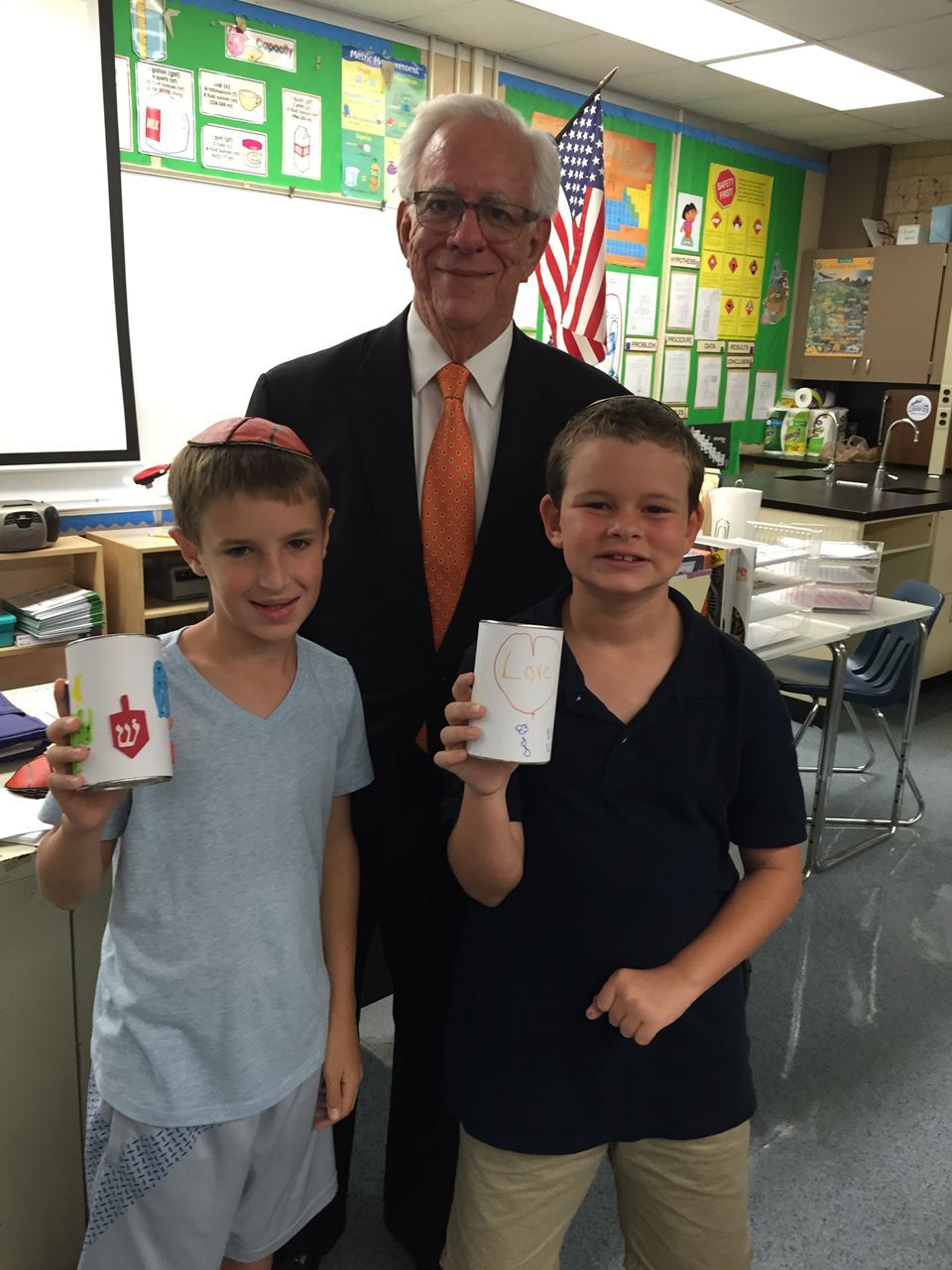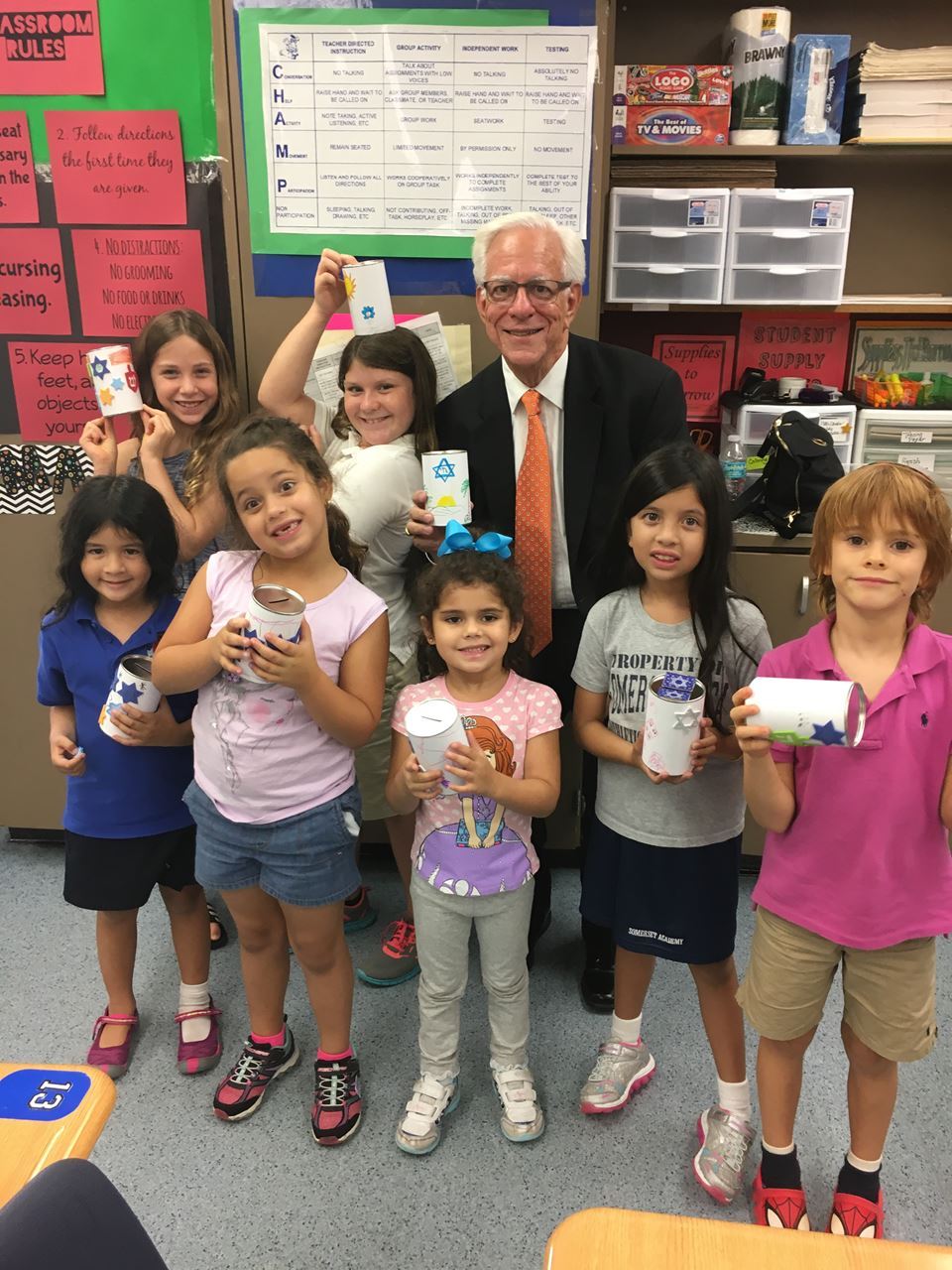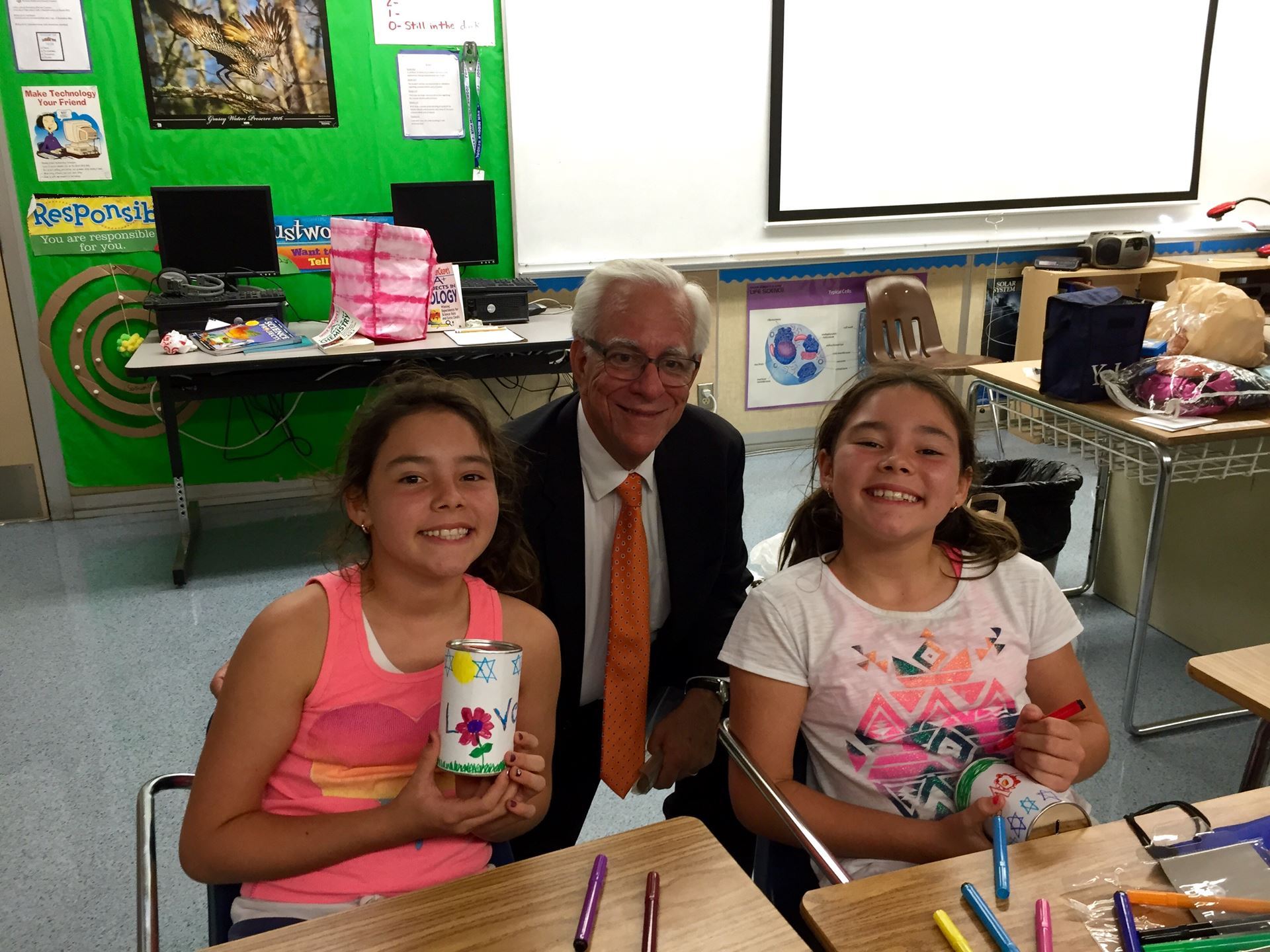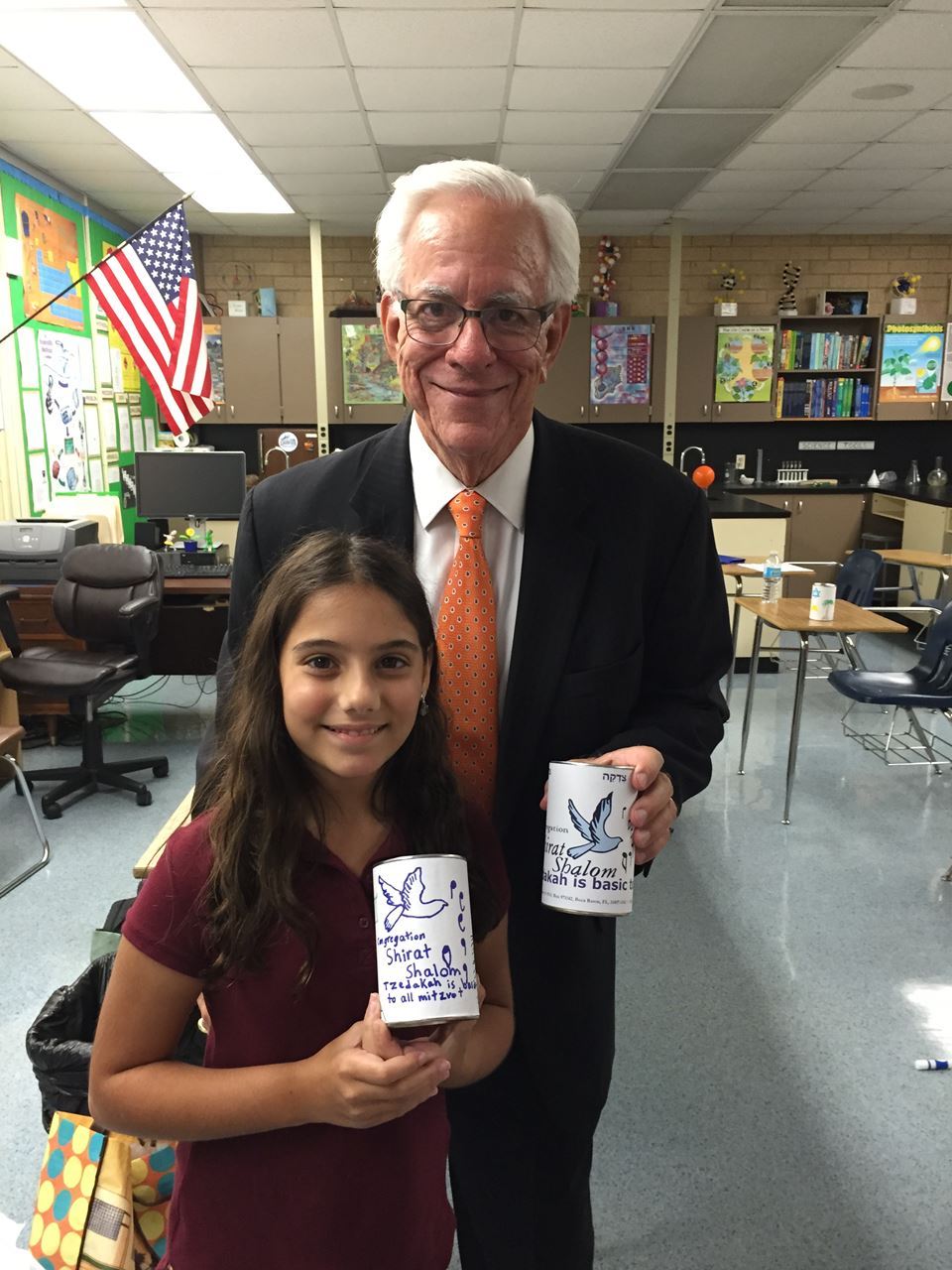From Cantor Lee: When Marty told me of the project he wanted to organize for Shirat Shalom and the story behind it, I knew this had to be shared! For this Living Story is one that has been a part of the Jewish people perhaps since the beginning. Marty's part in the story begins in 1951 when he was just a child....
I Remember my Grandmom by Marty Hyman
The year was 1951. I was almost seven years old and although my parents could not afford to send me to an overnight camp, I was sent to live with my mom’s parents, my Grandfather Jacob and my Grandmother, Esther, for the summer in Atlantic City, New Jersey. My Grandmother Tillie on my dad’s side lived across the street. Each weekend during the summer my mom and dad would come down the shore from steamy hot Philadelphia to spend the weekend in the cool breezes of the Atlantic Ocean.
One weekend in July, I remember when my dad’s mom, Grandmom Tillie, came across the street to visit us and she seemed very worried. She had just received the electric bill for June in the mail and was worried about how she would be able to pay the $6.50 bill. In fact, my dad had to pay the bill for her.
I felt bad seeing how worried she was about paying a bill. She was living month to month on a very small Social Security check that was so small that she struggled to buy her food, pay rent and pay all of her bills.
Yet, I still remember visiting her for Erev Shabbat dinner on the following Friday. After she prepared the table, and lit the candles, she went into the kitchen. I followed her and saw on the window sill over the kitchen sink that she had several different shaped cans. They were her collection of Tzedakah cans.
The writing on all of the cans was in Hebrew. I didn’t know how to read Hebrew at that time. So she explained that the rectangle can with blue writing on it was for the Jewish National Fund, one square one was for an Israeli orphan’s school, another was for trees for Israel and one round can was from her own Community Synagogue that was on Maryland and Pacific Avenues.
The joy that I saw on her face when she placed the few pennies that she had into the cans made me realize how rich she felt at that moment. This was a woman that was so poor she needed her son to pay a very small electric bill for her. But in that kitchen on Shabbat, I saw in my Grandmom’s face how she felt like the richest woman on earth.
Giving Tzedakah does that you know.
While the coins and bills that you may place in the can will help someone else, what it does to you, how it makes you feel so rich is also a very important result of fulfilling the mitzvot of Tzedakah.
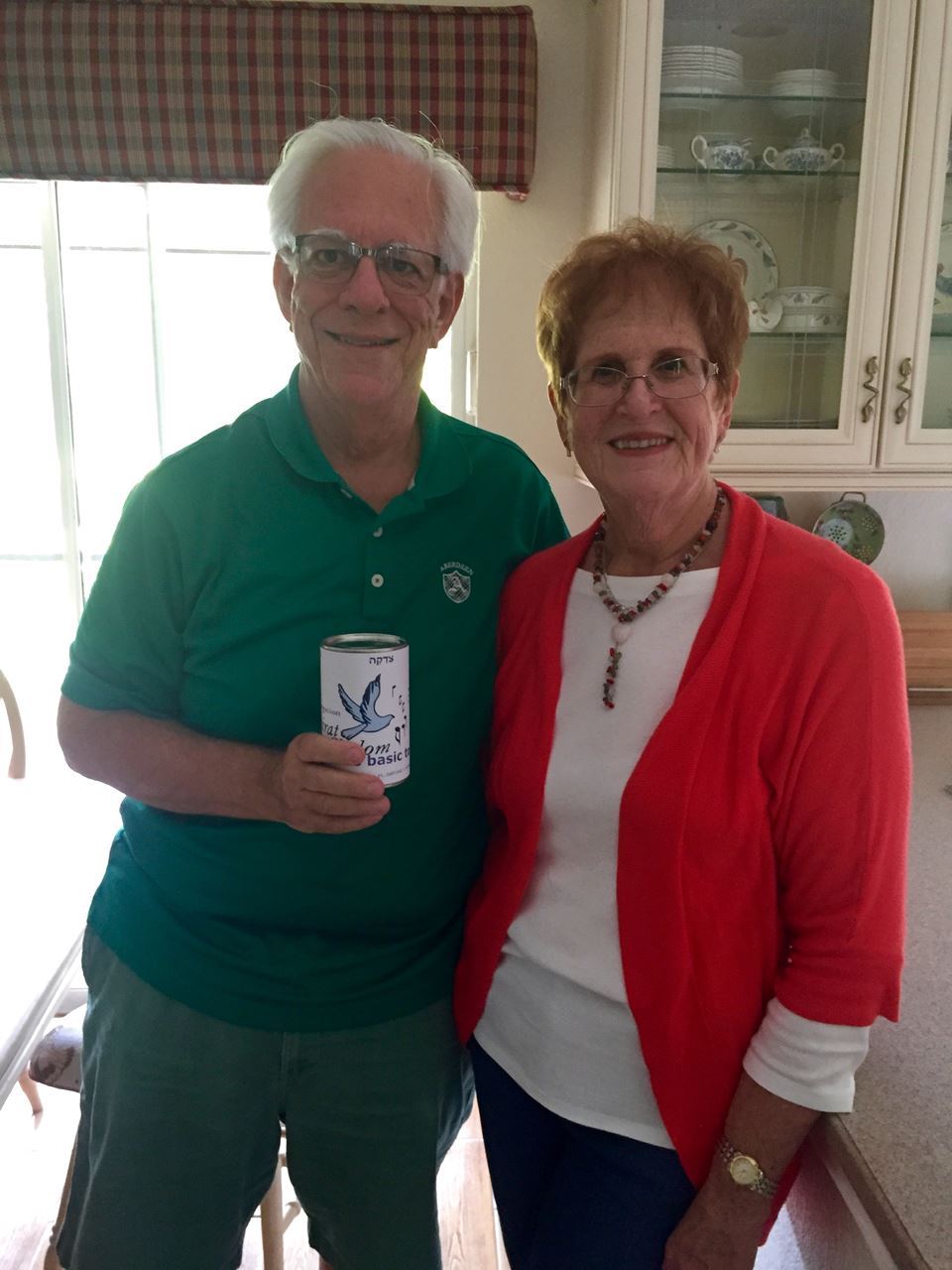 Marty's Tzedakah Can Project
Marty's Tzedakah Can Project
Marty and his wife donated 300 Tzedakah cans (yes 300! ) to Shirat Shalom and designed beautiful labels as well for each can. These will be given out during Rosh Hashanah, the plan being that each family returns a full can next year during the holidays.
Marty also included blank labels so the Hebrew School children could design their own Tzedakah cans. We invited Marty to speak to the children and they were mesmerized by his story! Afterwards as they each designed a unique label and made the commitment to fill their Tzedakah can with coins, we told them that they too are part of this Living Story!
From Rabbi David:
Marty and his wife, Fran, are the embodiment of who we are as Jewish people. I recall a scene from the famous musical "Fiddler On The Roof" when Reb Tuvia hands a piece of cheese to Perchick, the young starving student from the city of Kiev, and urges him to take the gift. "Take it," he tells Perchick , it will be my honor." At first I thought this is part of the scene's humor. Then I realized there is a much serious element to that scene.
Upon creating the Jewish nation the Torah gave us the secret for survival as a nation. One can see it as a theme throughout the entire 613 commandments. It is compassion for our fellow man, to animals and to Mother Earth. The Torah as well as the entire Jewish tradition understood that a healthy society is a society which creates the kinds of social laws which take care of the weakest, the poorest elements of society as well as laws that make this world a better place even in the smallest measures.
Over the years these laws of righteousness or Tzedakah turned from merely biblical legal obligations to who we are as Jews. We became a people of Compassion with a keen sense of justice and concern for others.
Helping others takes many forms. It is our deepest conviction that we came to this world not only to enjoy it but to contribute to its welfare. This is the "Tikun Olam" we often talk about.
In fact while we do Tzedakah willingly because we understand its importance, the great Rabbis of the Talmud kept reminding us that any act of Tzedakah such as donating money to a good cause or helping in many other ways is our obligation, not a choice. In old Europe and even now in certain Jewish circles it is a tradition that even the a person with the most limited resources has a Tzedakah box to which he adds coins as often as he possible can.
Marty was telling our Hebrew School students an amazing truth. It is the truth that Reb Tuvia told Perchick. Giving Tzedakah has a profound effect on us. It makes us feel better about ourselves and about our world. It gives us hope for better world for all of us.
Indeed, we can cure the world from all its strife and hate with the prescription the Torah gave us, with acts of kindness.
One act of kindness at a time.
Rabbi David
Would you like a Shirat Shalom Tzedakah can? We would be delighted to give you one! And how blessed we will be in knowing that in helping us we are in turn helping you!
Marty Age 7 and his grandparents


Confirmation Student Jared gluing 300 labels!
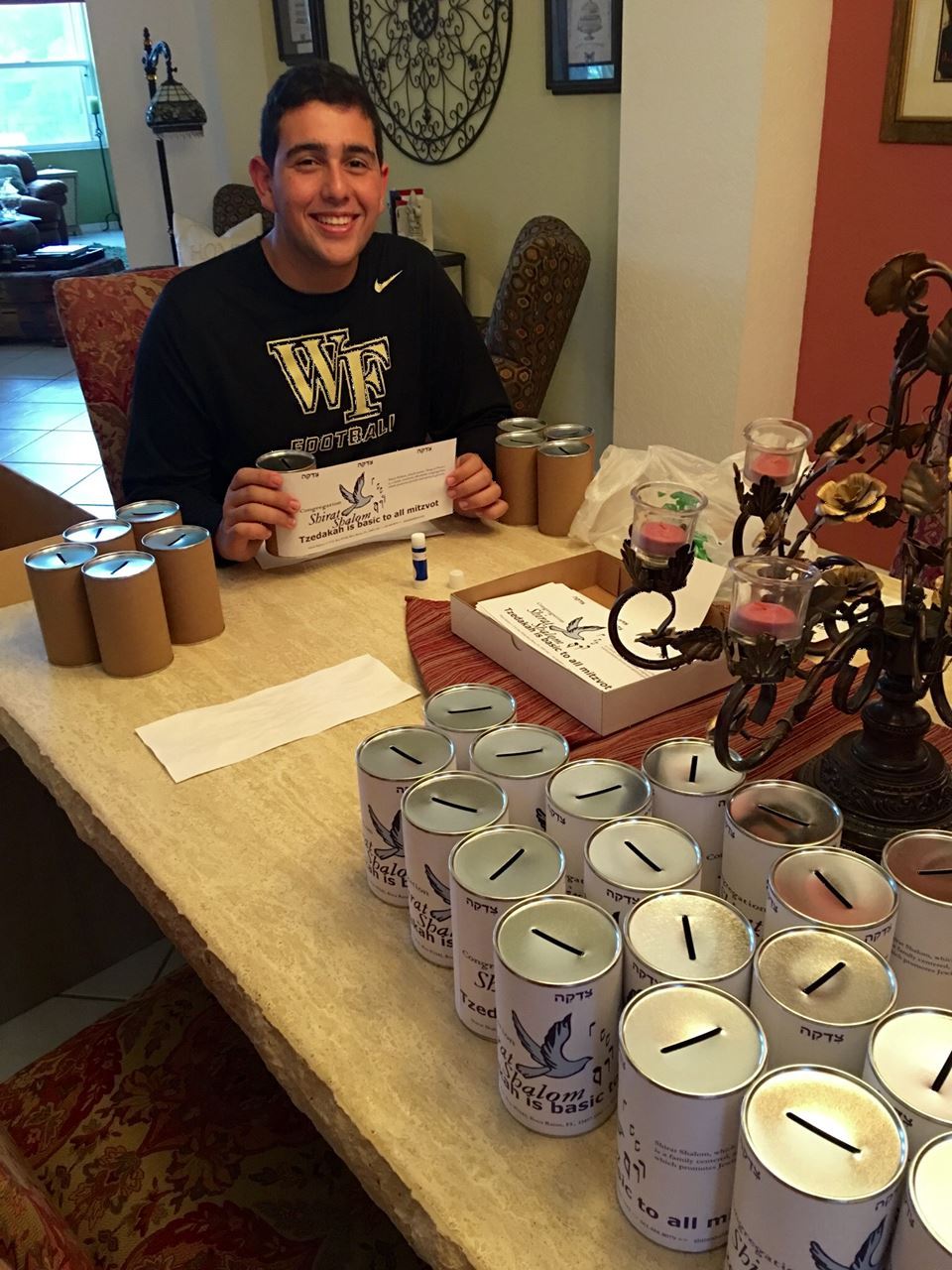
Marty with some of our Hebrew School Children
